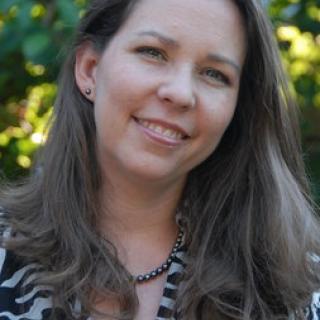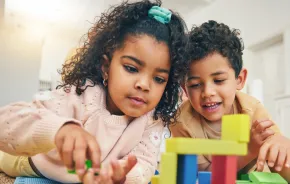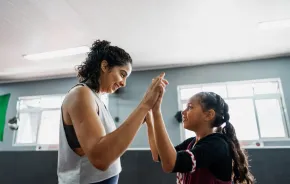 Editor's note: In response to a recent statement by actress Raven-Symone that got many families talking again about race, we asked two moms to weigh in on the benefit, or drawback, of labels. Read our partner piece here for a different view.
Editor's note: In response to a recent statement by actress Raven-Symone that got many families talking again about race, we asked two moms to weigh in on the benefit, or drawback, of labels. Read our partner piece here for a different view.
Actress Raven-Symone recently told Oprah Winfrey that she is “American” not “African American.” Despite the social media firestorm that followed, I understood what Raven was trying to say. In 1997, Tiger Woods also raised eyebrows when he admitted to Oprah that he felt uncomfortable being called African American. He had a different reason than Raven Symone: that he is of a diverse racial heritage. But it seems that both of these stars were trying to reject being labelled based on their skin color.
I’ve become much more conscious of labels since a marrying a man of Filipino descent. My husband has often been called Asian American or Filipino American. But he prefers the term American. After graduating from the United States Air Force Academy and serving his country in the Armed Forces, he feels strongly about this. He is in no way dismissing his ethnicity — he is proud of his heritage — but his citizenship is American. He believes that these hyphenated labels — especially when they refer to nationality — are at the least confusing and at worst divisive. I agree.
For example, we recently attended a party where a woman asked me “what” my children were. When I responded that their father is of Filipino descent, she shared that her husband is Chinese American. I asked what part of China he hailed from and she answered “Oh, he was born here; his great-grandparents came from China.”
This begs the question: How far back do we go? My ethnic background is very diverse. But I don’t call myself a Czech-British-German-Native-American.
This issue of labeling was brought home to me after I had children. It started the moment we had to decide which race box to check on our firstborn's birth certificate, and continues today with the oft-asked question, “What are they?” Or the less nuanced, “What are they mixed with?” Although I’ve never felt that these questions were posed in a malicious way, I do think they speak to our society's need to sort and label others.
My husband, when asked, will say, “I’m American.” When pressed, he will say, “My parents are from the Philippines.” In my opinion, that is a more correct answer than Filipino American. Nationality should be separate from ethnicity.
Curious about what others thought, I asked for a response on Facebook to Oprah’s interview with Raven. I received many comments, here is a sampling:
“My husband refers to himself as simply, 'American,’” Lisa, whose husband’s parents emigrated from Greece, said. “He feels it insults his parents struggle to become citizens if he were to hyphenate. Their sense of pride in calling themselves Americans was stressed in his upbringing. He's fluent in Greek and has visited multiple times, but he's still American first.”
“I didn't come from Africa so why are people trying to call me African-American,” Dana, who identifies as black, said. “Also, if a person comes from another country and becomes a citizen they deserve the right to be called Americans!”
“Ideally we should all identify as Americans, but I know of people that feel that they need to add "African" or other country of origin or they are somehow denying their heritage, not respecting it,” another friend, DeAnn, said.
Rejecting hyphenated nationality isn’t a new idea. I'm thinking of a 1917 quote from Theodore Roosevelt:
There is no room in this country for hyphenated Americanism ... The one absolutely certain way of bringing this nation to ruin, of preventing all possibility of its continuing to be a nation at all, would be to permit it to become a tangle of squabbling nationalities.
He was speaking of the most common immigrant populations at that time, primarily Irish and Italian. But it sounds to me as if he had the same concerns, that by hyphenating, we divide ourselves.
I think America is a greater and stronger nation because of our melting-pot culture, and I believe that all Americans should be proud of their ethnicity and racial heritage. Our DNA and our forefathers are a part of what makes us who we are. But perhaps these hyphenated terms are outdated in today’s America. As interracial marriages increase and more people can claim multi-ethnic backgrounds, race is no longer clear-cut, if it ever was. Like Raven-Symone, I wish we could live in a colorless world where labels aren’t used at all. Since that is unlikely to happen anytime soon, maybe it’s time we came up with a better term — one that separates nationality from ethnicity.











